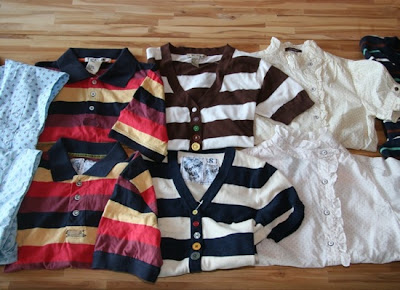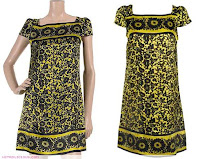You're a marketer looking for new channels of distribution, so where oh where do you turn? The social networking site that every other advertiser is penetrating of course....Facebook is what TV was for advertisers back in the old days (just kidding). Warner Bros announced that the "Dark Knight" and select movies will be available for streaming on the social media site, a feature that will only be available to consumers in the U.S.
Rentals will cost 30 Facebook credits or $3 for a two day viewing window. Thomas Gewecke, President of Warner Bros. Digital Distribution, comments on the company's new practice: making our films available through Facebook is a natural extension of our digital-distribution efforts. It gives consumers a simple, convenient way to access and enjoy our films through the world's largest social network."
What does this mean for Netflix? Let's talk stats. Netflix stock fell by 20% over the past few weeks, possibly resulting from Amazon launching its own subscription and TV-streaming service. If other studios follow in Warner Bros. footsteps this can be diastrous for Netflix. Everyone wants in on this streaming business. Dare I even mention that it can possible make the sad exit from the game like BlockBuster? Nah, let's not get ahead of ourseleves here.
Sorry as an individual who belongs in the group that marketers so affectionately coin as "early adopters" or "latest and greatest" I want no part in this. I'm a movie-nista, more so than my love for film itself is the movie watching experience. I love a booming surround system, the 20X40 Regal screen. It's all about the experience. Watching quality movies on Facebook? I'll pass on that one
-AV
integrated marketing communications student, covering branding, marketing, travel, sports, ..all areas of interest
Friday, March 11, 2011
Friday, March 4, 2011
Case Study 2 : Forever Fradulent
Forever 21 is the store you go to when you need last minute accessories to enhance an outfit, for some people it’s their go to store for party clothes. The retailer provides chic designer-esque affordable clothing, for the girl that's not trying to break bank. Throughout my circle of friends it’s known that shopping at Forever 21 is for a one time wear, because the clothes are not high quality or durable.While the store has become a go to store for young women, the company has become more of a go to trial store. Over the past several years Forever 21 has been inundated with legal proceedings from accusations of copyright infringement to sweatshop labor.
Copyright Infringement
Store founders Do Won and Jin Sook Chang (commonly referred to as Mr and Mrs. Chang) has been trying to sew their legal woes since 2007. Within the past four years they have had to deal with over fifty law-suits of copyright infringement from well known high fashion brands like Diane Von Furstenberg to young up incoming designers like Trovata. In 2007 Diane von Furstenburg filed a copyright infringement law suit against the company claiming that the brand willfully copied the design, pattern, and measurement of her Cerisier and Aubrey smock dresses.
U.S. copyright laws protect only prints and graphics not the design itself, making most cases cases hard to prove. The company settled out of court for an undisclosed amount with well recognized brands like Anna Sui, Diane von Furstenberg and Anthropologie. For me this implicates guilt. The company blatantly implements fraudulent practices and goes so far as to pay off lesser known brands for appropriating their designs. For instance designer Victoria Johnson noticed that her skirt which retails for $175 at Barney’s was being sold in Forever 21 for less than $18 (Bloomberg BusinessWeek, 2011). Johnson soon learned that the company had a policy in stored for these scenarios. The Chang family offered to pay her ten percent of the $40,000 worth of the skirts they said they sold. She declined and they made a counter offer of 9,000 which she then accepted (Berfield, 2011). Fashion copyright law expert Susan Scaifidi believes that Forever 21 treats copyright infringement as part of their business model, she comments: "Illegal copying has been incorporated into their business model. But it's not necessarily a terrible result for designers who do receive payment."
The company has managed to avoid going to trial until recently.Travata, a local designer from Newport Beach accused Forever 21 for copying its unique button placements, decorative stitching, and a tag that included one of the founders' names. In May 2009, Mrs. Chang was forced to testify in the U.S. District Court in Santa Ana. Her testimonial was very telling about her alleged involvement in the company’s operations. Trovata's litigation team learned that the company’s biggest suppliers One Clothing is owned by one of Mr. Chang’s private investment firms. Ms. Chang maintains that she has limited involvement and knowledge of the sales, shareholders etc. Her work is reduced to to selecting apparel that her team of 6 or 7 buyers present to her.
The company is taking appropriate measures to avoid future legal woes. Jin Woo Chang is putting together a design team to create original clothing for Forever 21. On the other hand, The Council of Fashion Designers of America has been pressuring Congress to pass legislation on the Design Piracy Prohibition Act. Fashion is one of the few creative commerce that is not fully protected by U.S. copyright law.The bill is spearheaded by CFDA president, Diane von Furstenberg. The act gives designers three years of copyright protection for “original” designs if they register their designs within the first three months of the first time the design has been presented to the public. If infringement is found, designers can seek damages of the higher of up to $250,000 per infringement, or $5 per copy. The infringing apparel may also be seized and destroyed (Weisburd Steven I, 2009).
Critics believe that the act would stifle independent designers while giving big fashion houses a monopoly in the industry. Establishing copyright laws in fashion is a delicate matter. Many argue that designers create pieces through inspiration from their peers, other art forms etc. Despite the source of inspiration, there is a blurry line between gathering inspiration from a designer and flat out creating a knock off. As a college student who does not have a high disposable income my innate response is to be against this proposed legislation. Consider if the bill is passed, the quality of merchandise in retail stores like H&M, Zara, Banana Republic and even Forever 21 will suffer.The inspired Alexander Wang boyfriend blazer sold by Bebe will no longer be available to me. What will the everyday people who cannot afford to spend $349 on a blazer wear?
Ethical Dilemmas
Forever 21 not only blatantly rip off designers but they have come under fire for unethical employment practices. The company has been brought up in court several time for accusations of running sweat shops both domestic and internationally. U.S. factory workers launched a national boycott in 2001 protesting in front of stores across the country and even outside the Changs’ home. Factory worker Guadalupe Hernandez explains her work conditions: “$4 per hour working 10 hours a day 6 days a week in a factory with no running water and no bathroom. A lot of our factories were dirty and unsafe, with rats and cockroaches running around." The protest continued for three years, during this time Forever 21 sued workers for defamation. Several manufactures (subcontracted) paid the some of the women a sum of 175,000. In 2004 the Changs finally decided on an out of court settlement with their frustrated employees. Some of the women were featured in the Emmy award winning documentary Made in LA which details the deplorable conditions they endured working for the company. The brand has faced sweat shop labor accusation overseas as well but manages to avoid liability by placing the blame on third party manufacturers.
Every time I walk into a Forever 21 store I get an uncomfortable feeling (prior to researching the company’s practices), it’s a mixture of annoyance and embarrassment. I look around and see a knock off the Dolce Vita boots I dropped a dime on selling for $40. A part of me is slightly embarrassed because I spent too much on boots that I could have gotten less cheaper, and the other part of me is highly annoyed because the boots I’m wearing to the untrained eye looks like Forever 21 boots. I can only imagine how designers feel. I'm not sure they feel comforted by the old adage imitation is the greatest form of flattery. While I understand that these big fashion houses are fighting for their intellectual property to remain in tact, they must also realize that Forever 21 is catering to a different market segment. I doubt that their sales are being severely impacted by a retailer whose target audience is probably not in the same income bracket as their own audience.I believe lesser known brands have a lot more to lose. At the end of it all in the world of art, and the creative license, one's man loss cannot be rightfully compared to another's. As a consumer the proposed DPPA act makes me uneasy because it threatens me directly- my clothing choices and the manner in which I choose to express myself. It seems unlikely that this bill will pass, so as of right now I'll relish in my shopping trips to Zara and Banana Republic. Sorry DVF, but I'm a frugal college student.
Copyright Infringement
Store founders Do Won and Jin Sook Chang (commonly referred to as Mr and Mrs. Chang) has been trying to sew their legal woes since 2007. Within the past four years they have had to deal with over fifty law-suits of copyright infringement from well known high fashion brands like Diane Von Furstenberg to young up incoming designers like Trovata. In 2007 Diane von Furstenburg filed a copyright infringement law suit against the company claiming that the brand willfully copied the design, pattern, and measurement of her Cerisier and Aubrey smock dresses.
(Diane von Furstenberg dresses on the left; Forever 21 on the right)
 | |||
| Forever 21 shirts on top row; Travata on bottom; Odell, 2009 |
The company is taking appropriate measures to avoid future legal woes. Jin Woo Chang is putting together a design team to create original clothing for Forever 21. On the other hand, The Council of Fashion Designers of America has been pressuring Congress to pass legislation on the Design Piracy Prohibition Act. Fashion is one of the few creative commerce that is not fully protected by U.S. copyright law.The bill is spearheaded by CFDA president, Diane von Furstenberg. The act gives designers three years of copyright protection for “original” designs if they register their designs within the first three months of the first time the design has been presented to the public. If infringement is found, designers can seek damages of the higher of up to $250,000 per infringement, or $5 per copy. The infringing apparel may also be seized and destroyed (Weisburd Steven I, 2009).
Critics believe that the act would stifle independent designers while giving big fashion houses a monopoly in the industry. Establishing copyright laws in fashion is a delicate matter. Many argue that designers create pieces through inspiration from their peers, other art forms etc. Despite the source of inspiration, there is a blurry line between gathering inspiration from a designer and flat out creating a knock off. As a college student who does not have a high disposable income my innate response is to be against this proposed legislation. Consider if the bill is passed, the quality of merchandise in retail stores like H&M, Zara, Banana Republic and even Forever 21 will suffer.The inspired Alexander Wang boyfriend blazer sold by Bebe will no longer be available to me. What will the everyday people who cannot afford to spend $349 on a blazer wear?
Ethical Dilemmas
Forever 21 not only blatantly rip off designers but they have come under fire for unethical employment practices. The company has been brought up in court several time for accusations of running sweat shops both domestic and internationally. U.S. factory workers launched a national boycott in 2001 protesting in front of stores across the country and even outside the Changs’ home. Factory worker Guadalupe Hernandez explains her work conditions: “$4 per hour working 10 hours a day 6 days a week in a factory with no running water and no bathroom. A lot of our factories were dirty and unsafe, with rats and cockroaches running around." The protest continued for three years, during this time Forever 21 sued workers for defamation. Several manufactures (subcontracted) paid the some of the women a sum of 175,000. In 2004 the Changs finally decided on an out of court settlement with their frustrated employees. Some of the women were featured in the Emmy award winning documentary Made in LA which details the deplorable conditions they endured working for the company. The brand has faced sweat shop labor accusation overseas as well but manages to avoid liability by placing the blame on third party manufacturers.
Every time I walk into a Forever 21 store I get an uncomfortable feeling (prior to researching the company’s practices), it’s a mixture of annoyance and embarrassment. I look around and see a knock off the Dolce Vita boots I dropped a dime on selling for $40. A part of me is slightly embarrassed because I spent too much on boots that I could have gotten less cheaper, and the other part of me is highly annoyed because the boots I’m wearing to the untrained eye looks like Forever 21 boots. I can only imagine how designers feel. I'm not sure they feel comforted by the old adage imitation is the greatest form of flattery. While I understand that these big fashion houses are fighting for their intellectual property to remain in tact, they must also realize that Forever 21 is catering to a different market segment. I doubt that their sales are being severely impacted by a retailer whose target audience is probably not in the same income bracket as their own audience.I believe lesser known brands have a lot more to lose. At the end of it all in the world of art, and the creative license, one's man loss cannot be rightfully compared to another's. As a consumer the proposed DPPA act makes me uneasy because it threatens me directly- my clothing choices and the manner in which I choose to express myself. It seems unlikely that this bill will pass, so as of right now I'll relish in my shopping trips to Zara and Banana Republic. Sorry DVF, but I'm a frugal college student.
Sources:
Berfield, S. (2011, January 20). Forever 21's Fast (and Loose) Fashion Empire. Retrieved February 27, 2011, from Bloomberg BusinessWeek: http://www.businessweek.com/magazine/content/11_05/b4213090559511.htm
Odell, A. (2009, April 13). Forever 21’s Ability to Copy Designer Clothes Could Be in Jeopardy. Retrieved March 03, 2011, from New York Fashion : http://nymag.com/daily/fashion/2009/04/forever_21s_ability_to_copy_de.html
Province, D. (2009, September 8). Watch Out H&M – the CFDA Want Their Designs Back . Retrieved February 27, 2011, from The Innovative Fashion Council Blog: http://ifcsf.blogspot.com/2009/09/watch-out-h-cfda-want-their-designs.html
Weisburd Steven I, A. R. (2009, 20 January). The Design Piracy Prohibition Act. Retrieved March 3, 2011, from The New York Law Journal: http://www.dicksteinshapiro.com/files/upload/NYLJ_Design%20Piracy.pdf
Subscribe to:
Posts (Atom)

